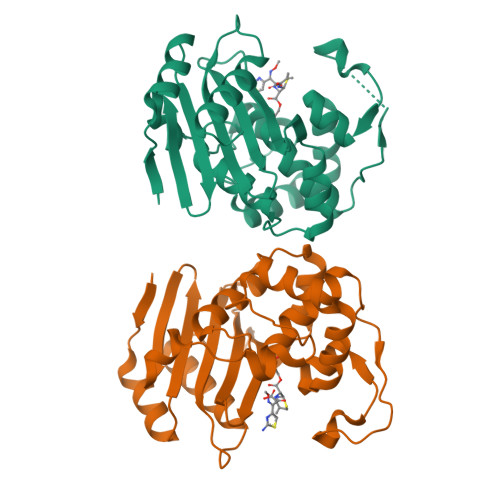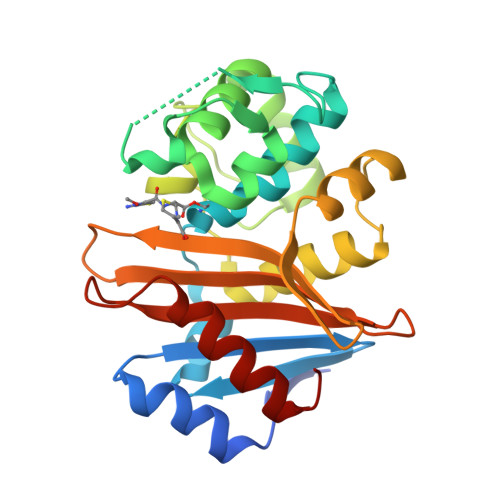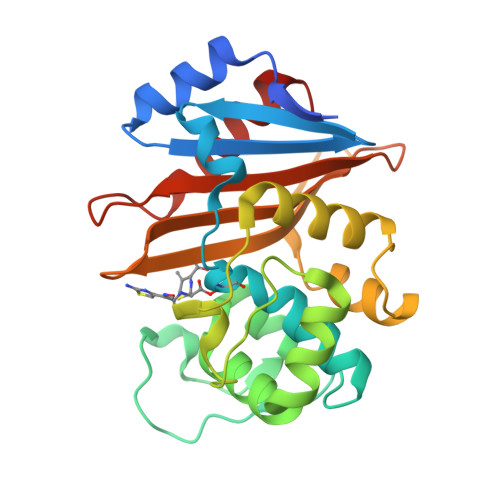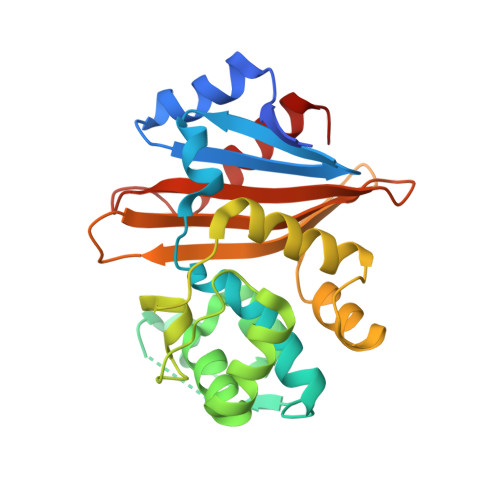Multiple substitutions lead to increased loop flexibility and expanded specificity in Acinetobacter baumannii carbapenemase OXA-239.
Harper, T.M., June, C.M., Taracila, M.A., Bonomo, R.A., Powers, R.A., Leonard, D.A.(2018) Biochem J 475: 273-288
- PubMed: 29229762
- DOI: https://doi.org/10.1042/BCJ20170702
- Primary Citation of Related Structures:
5WI3, 5WI7, 5WIB - PubMed Abstract:
OXA-239 is a class D carbapenemase isolated from an Acinetobacter baumannii strain found in Mexico. This enzyme is a variant of OXA-23 with three amino acid substitutions in or near the active site. These substitutions cause OXA-239 to hydrolyze late-generation cephalosporins and the monobactam aztreonam with greater efficiency than OXA-23. OXA-239 activity against the carbapenems doripenem and imipenem is reduced ∼3-fold and 20-fold, respectively. Further analysis demonstrated that two of the substitutions (P225S and D222N) are largely responsible for the observed alteration of kinetic parameters, while the third (S109L) may serve to stabilize the protein. Structures of OXA-239 with cefotaxime, doripenem and imipenem bound as acyl-intermediates were determined. These structures reveal that OXA-239 has increased flexibility in a loop that contains P225S and D222N. When carbapenems are bound, the conformation of this loop is essentially identical with that observed previously for OXA-23, with a narrow active site that makes extensive contacts to the ligand. When cefotaxime is bound, the loop can adopt a different conformation that widens the active site to allow binding of that bulky drug. This alternate conformation is made possible by P225S and further stabilized by D222N. Taken together, these results suggest that the three substitutions were selected to expand the substrate specificity profile of OXA-23 to cephalosporins and monobactams. The loss of activity against imipenem, however, suggests that there may be limits to the plasticity of class D enzymes with regard to evolving active sites that can effectively bind multiple classes of β-lactam drugs.
Organizational Affiliation:
Department of Chemistry, Grand Valley State University, Allendale, MI 49401, U.S.A.


















